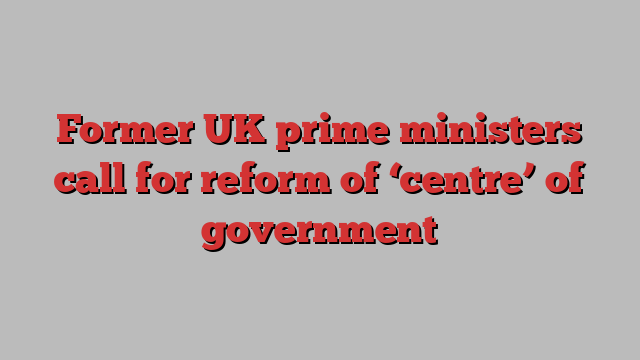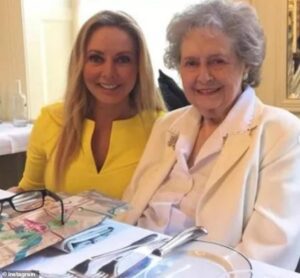
Unlock the Editor’s Digest for free
Roula Khalaf, Editor of the FT, selects her favourite stories in this weekly newsletter.
The UK prime minister should break up the Cabinet Office and make big decisions with only a handful of key colleagues, according to a report set to be unveiled on Monday by former premiers Sir John Major and Gordon Brown.
The report from the Institute for Government think-tank said the machinery of state around the prime minister was “weak” and “not capable” of fulfilling its role and holding Whitehall accountable for delivery.
The IfG said the “centre” of government — Downing Street, the Cabinet Office and the Treasury — needed radical reform, including a new executive committee of ministers and splitting up the Cabinet Office.
Britain’s system of executive power, in which the prime minister heads a large cabinet of ministers who run departments, first emerged in the 18th century and “worked well” for a time, the IfG said.
“[But] in recent decades, cracks have emerged. The UK has become a highly centralised country with a closed, and weak, centre,” according to the report.
The review, which will be launched by former Conservative and Labour prime ministers Major and Brown, is the result of a year-long “commission on the centre of government” convened by the IfG.
Former Tory chancellor Sajid Javid, Labour peer Baroness Sally Morgan and crossbench peer Baroness Louise Casey were among the commissioners.
Among its seven core recommendations, the commission called for the creation of an executive cabinet committee, made up of a handful of ministers appointed by the prime minister, to make strategic decisions.
The cabinet, which has 32 attendees, had become “too big”, the IfG said. The smaller committee would distil the government’s priorities and agree fiscal rules, spending plans and departmental budget allocations. These would then be approved by the full cabinet.
“The executive committee, and the centre as a whole, needs to be more open to external expertise through both formal and informal means,” the report added.
Other recommendations were for Number 10 and the Cabinet Office to be restructured into a Department of the Prime Minister and Cabinet (DPMC), plus a separate Department for the Civil Service.
At the moment the Cabinet Office, headed by the cabinet secretary, has dual responsibilities for supporting the prime minister in ensuring the effective running of government, while also managing the civil service.
A new DPMC would better support the executive leadership of the prime minister, the report said, while hiving off management of the civil service would allow a stronger focus on modernisation and reform.
The report also recommended splitting up the job of cabinet secretary and head of the civil service, arguing that the two roles were not easily combined and required different skills from senior mandarins.
The proposal was trialled previously during Lord David Cameron’s premiership for almost three years, but critics complained that splitting the civil service leadership in two left the institution without a robust, authoritative voice.
In addition the report called for a statute to be drawn up for the civil service board to make its organisational structure clearer, improve accountability for top civil servants and improve the delivery of reforms.
The report called for the prime minister to bolster the currently vacant role of first secretary of state with political responsibilities both for delivering the government’s priorities and for the civil service.
The year-long commission was chaired by IfG director Hannah White and deputy chaired by historian Sir Anthony Seldon.
Labour leader Sir Keir Starmer’s chief of staff Sue Gray was among the scores of officials and academics who gave evidence to the IfG commission, according to people familiar with the matter.
The publication of the report comes as the opposition party is considering how best to implement Starmer’s plans for “mission-led government” if he enters Downing Street. Opinion polls point to a Labour win at the general election expected later this year.

